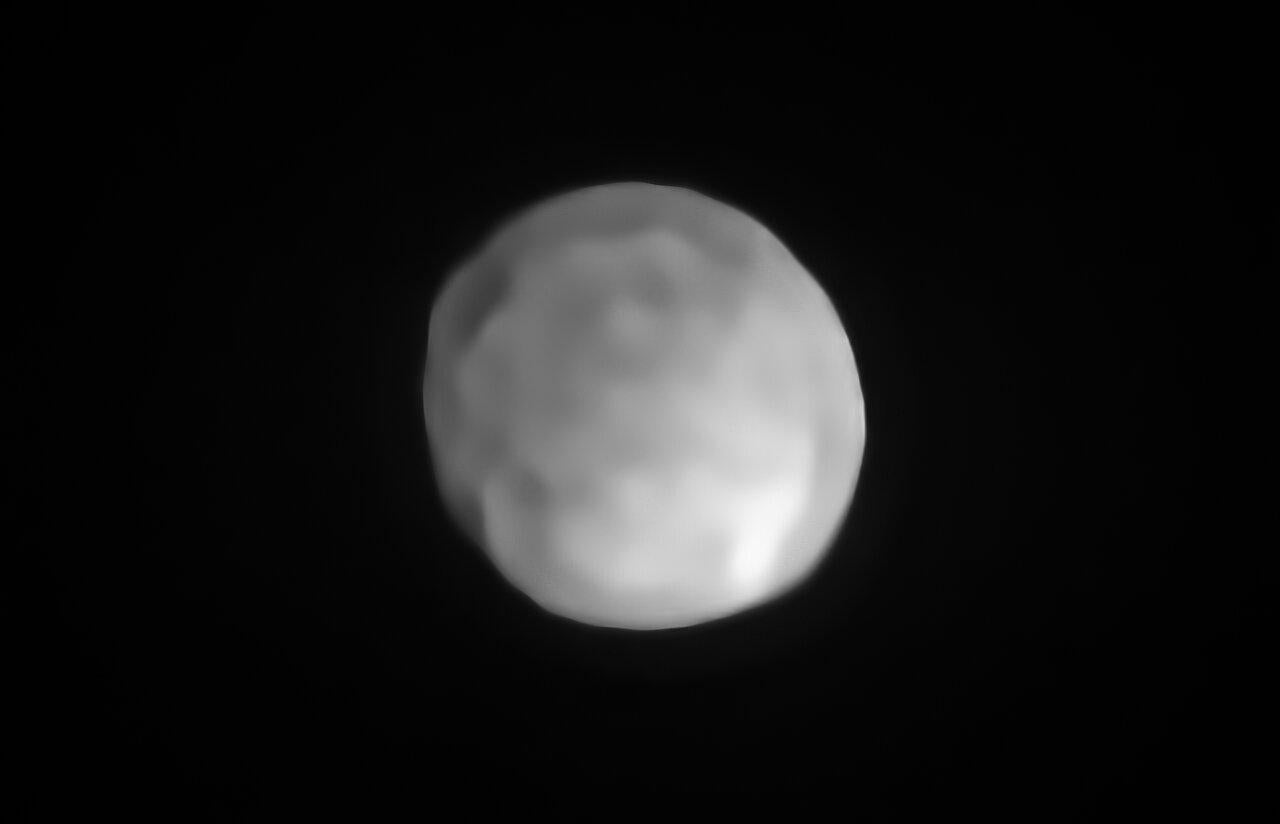Even as we peer to the ends of the universe, our solar system continues to surprise
Analysis: The latest discovery that Hygiea is a dwarf planet is a reminder of the unfathomable vastness of the cosmos, says Andrew Griffin


Astronomers have spent recent years peering out into the very depths of the universe, looking right at its edges. But even still, our Solar System has a stunning capacity to surprise.
In the last few weeks alone, scientists have revealed that the speed of the expansion of the universe continues to perplex us and that there are unimagined worlds in their own star systems. They continue to look further, examining those planets for signs of life and trying to understand how the universe came to be.
In that context, the discovery that Hygiea – previously thought to be an asteroid at the edge of our Solar System, but in fact possibly a dwarf planet – can seem a little small scale. It is only tiny, and is relatively close by, even if that means hundreds of millions of miles.
But it is a reminder that our Solar System is still unexplored. Our neighbourhood might seem finished, but it is filled with worlds that might or might not exist, and rocks that could turn out to actually be dwarf planets.
This is summed up by lead researcher Pierre Vernazza from the Laboratoire d’Astrophysique de Marseille in France, who made it clear that without powerful telescopes like the one used in this study, astronomers would not know the finer details of the region of space that surrounds the Earth.
“Thanks to the Very Large Telescope (VLT) and the new generation adaptive-optics instrument Sphere [the Spectro-Polarimetric High-contrast Exoplanet Research instrument], we are now imaging main belt asteroids with unprecedented resolution, closing the gap between Earth-based and interplanetary mission observations,” he said.
But it is key to cherish this moment: to remember that we can still be surprised even by those things that are relatively nearby, and that we should never be so arrogant as to think we cannot be surprised.
Even on the Earth, there are similarly unknown places, and the depths of its oceans remain unexplored. Once again, we are reminded of the vast scale of existence, and how important that is to cherish.
Hygiea might only be a little piece of rock sitting quiet and cold at the edges of the solar system. But that tiny world should also be a small reminder of the unfathomable vastness of the cosmos that contains it.
Join our commenting forum
Join thought-provoking conversations, follow other Independent readers and see their replies
Comments